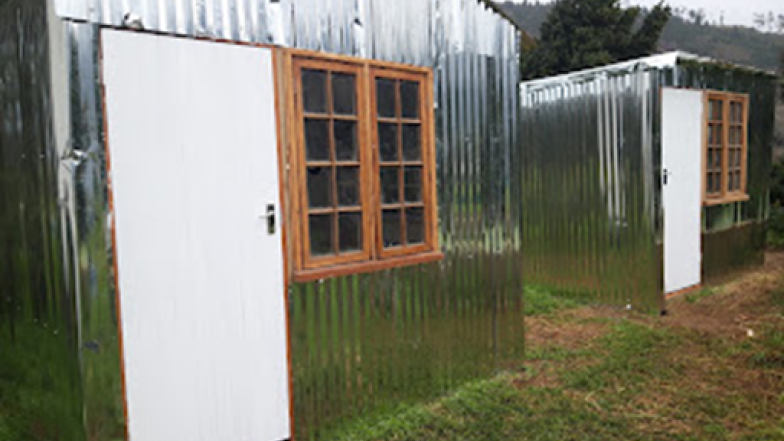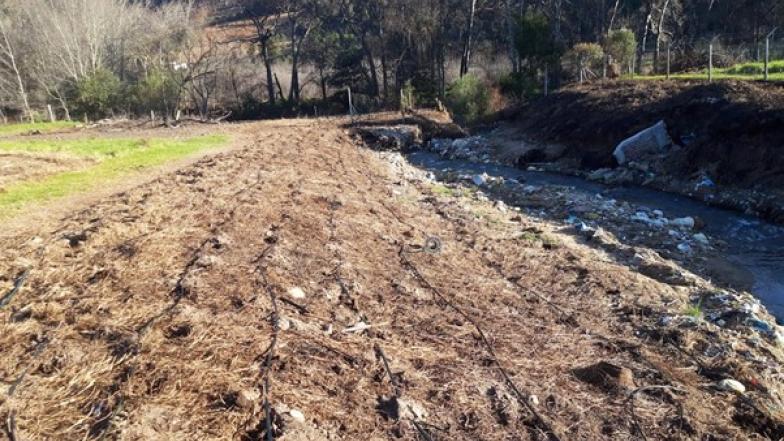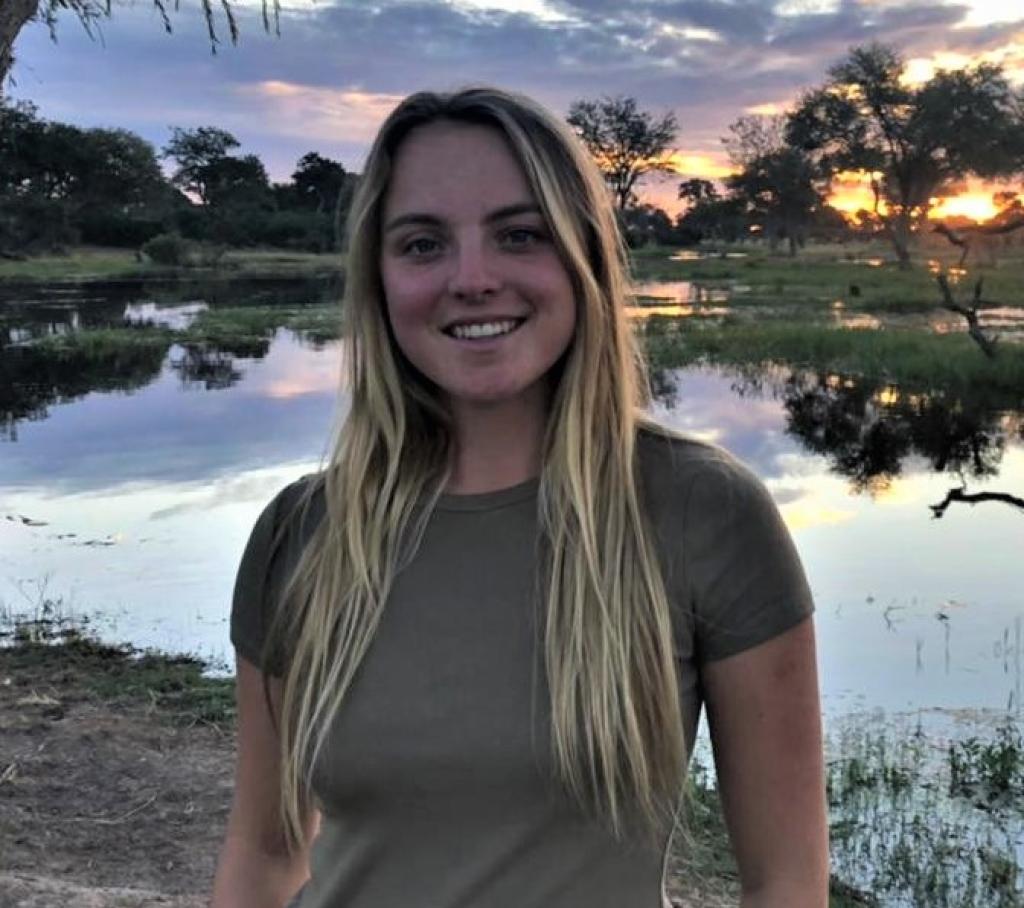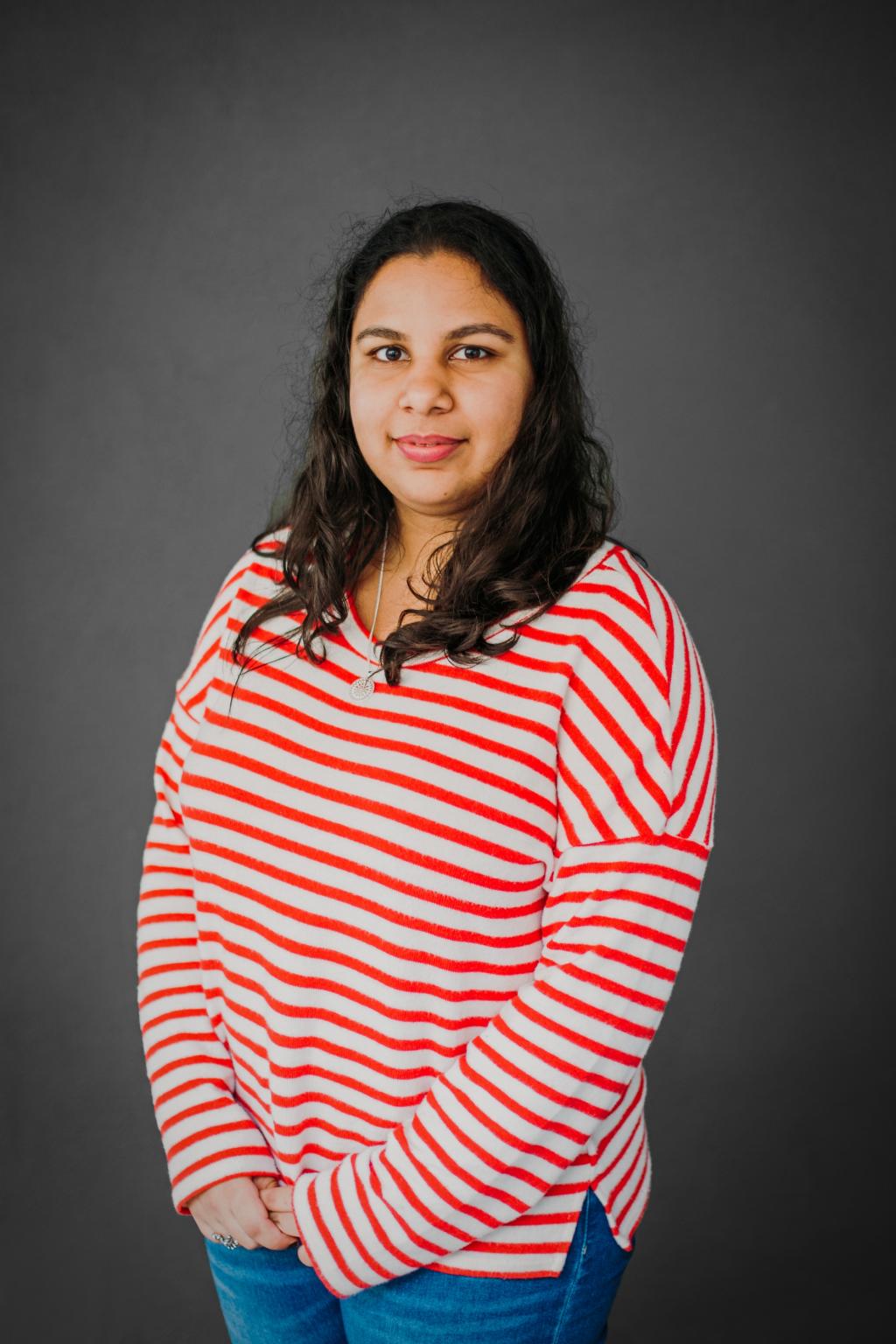The Water Hub is an existent off campus Living Lab, which we see as an opportunity for IDTD demonstration and catalyst in Franschhoek Valley.
An abandoned wastewater treatment works (WWTW) in Franschhoek was dubbed the Water Hub by researchers in 2018. Constructed in the 1960s on municipal land, the abandoned property offers opportunities to build a resource recovery centre and an innovative research project. This began with the treatment of contaminated surface water runoff of the Stiebeuel River bisecting the study site. The Water Hub's location provides a good test site reflexive of many of South Africa’s waterways, as informal settlement and urban poor coexist alongside attractive vineyards and affluent landowners. Thousands of local and international visitors are drawn to the Franschhoek valley to enjoy the fruits of wine production, and high-quality cuisine. By contrast, 2.5 km from the centre of Franschhoek, in the residential settlement upslope of the Water Hub, 64% live in informal houses, where 1 800 households share 150 toilets (Stellenbosch Municipality Annual Report, 2018).
Research at the Water Hub includes real-time monitoring of the performance using IoT technologies in six biofilters to improve understanding degradation and capture of CECs, PFOS and PFAS as well as the real time management of these systems. In addition, the laboratory scale biofiltration cells will test and evaluate different nature-based media including biochar, granulated activated carbon, crushed pine-needles and enzymes.
A brochure is available here


Ongoing Work/Projects

A control and experimental shack/dwelling that measures temperature and humidity in each structure. It is cooled and insulated by placing treated bottled sludge in an inner wall and in the ceiling. The project is recovering plastic bottles, cardboard and sludge from an old maturation pond. Warmer in winter, and at least 12oC cooler in summer in early afternoon. These housing structures are designed to respond to heat stress. to climate change. A demonstration of circularity.
4th Year Honours Project: Ebrahim Behardien

The Stiebeuel River that bisects the Water Hub is being restored. The banks have been sprayed with herbicide to limit the encroachment of weeds and kikuyu grass. A 500m stretch has been replanted with a range of indigenous plants and supported with an irrigation system. A litter trap is in place to capture and manage a large volume of litter that comes down the river from an underserviced informal settlement.
A Western Cape Government Project: Intaba Environmental Services.
The RESBEN project aims to develop a deeper understanding of the co-benefits of water treatment as a catalyst to drive interventions and solutions that unlock many SDGs. This project builds on research using nature-based processes to clean and treat water from contaminated surface water runoff from an informal settlement. The study site at the Water Hub, Franschhoek, is a research and innovation centre that has been chosen for the development of ASA in the RESBEN project; this includes laboratory experiments used to analyse bioprocesses in filter systems and risk assessments for the reuse of treated water for irrigating edible crops. Thus far, data gathered includes water quality data, mass balances, nutrient degradation, flow rate and retention time, but stakeholder analysis, risk assessment and governance are areas of the study that require more attention.
This project aims to address the pressing water security challenges faced in South Africa, with a focus on the Western Cape province through management of greywater and stormwater. The project implements water-sensitive urban design(WSUD) principles to mitigate water scarcity and promote sustainable water management practices. In this context, the project primarily emphasized the adoption of decentralized and nature based solutions(NbS) for grey water and stormwater management, targeting both informal settlements and high-density middle-income areas. The main phase of NEU-Water is designed to demonstrate and analyse technology and urban planning interventions. The first phase of the project is complete and the project team have been invited to submit Phase 2 which involves design and implementation. Supported by the Federal Ministry of Education and Research (BMBF) in Germany and based at the Water Hub.
Collaboration with TUMunich with experimentation at the Water Hub.
The main objectives of the pre-feasibility study are to assess opportunities for resource recovery at the Water Hub, including:
- to examine current water quality and effectiveness of currently implemented nature-based solutions and recommend further solutions such as sequential managed aquifer recharge technology (SMART) if appropriate;
- examine the feasibility of water reclamation and reuse;
- assess energy recovery through anaerobic co-digestion of different feed stocks; support development of business plans for entrepreneurship opportunities from organic (food) waste-to-energy streams, nutrient recovery (organic fertilizer) etc., and serving local markets;
- assess benefits for ecosystem services regeneration of deploying this Nexus approach; and
- support knowledge dissemination and capacity building among project partners and stakeholders through the enabling environment provided by the Living Lab concept of the Water Hub.
Emily's doctoral dissertation examines the efficacy of full-scale biofiltration systems in mitigating antiretroviral drugs (ARVDs) present in contaminated surface water runoff from an informal settlement. To assess the ARVD removal efficiencies, a field experiment is implemented at the Franschhoek Water Hub research site, examining a biofiltration system treatment train's performance under varying operating parameters and environmental conditions. The research extends to exploring the fate and accumulation of ARVDs in the environment by quantifying their concentrations in soil and plants within a small-scale vegetable garden irrigated with the biofilter-treated effluent. Through this field experiment, the objective is to enhance our understanding of the risks associated with employing biofiltration systems for treating and reusing ARVD-contaminated surface water in a small-scale agricultural context.

Kalpana’s PhD project focuses on surface waters polluted by active pharmaceutical ingredients (APIs) and particularly, how these substances interact with the environment and potential remediation methods. Various pharmaceuticals are present in the Stiebeuel River in high concentrations. The water quality of the Stiebeuel River is monitored at the Water Hub, which is a water research facility located in Franschhoek. The presence of these pharmaceuticals is due to the human activities in the informal settlement, Langrug, located upstream of the Water Hub. Various antiretroviral drugs, antibiotics and anti-inflammatories have been detected in the Stiebeuel River which is a cause for concern as these may have negative impacts on aquatic life in the catchment, as well as on human health. Engineered nature-based solutions will be explored as treatment methods with the API degradation potential of these systems being assessed in this project.
